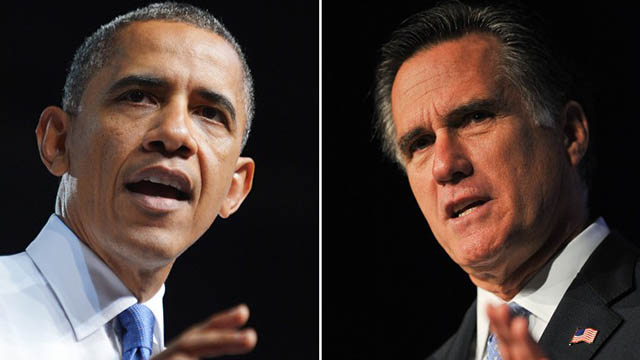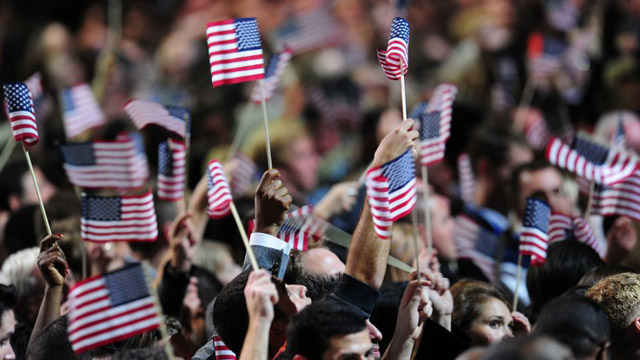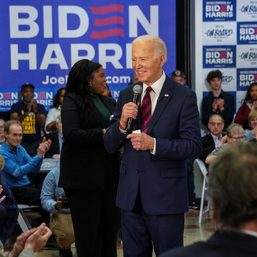SUMMARY
This is AI generated summarization, which may have errors. For context, always refer to the full article.

CALIFORNIA, USA – Now that the confetti has been swept away, the euphoria (or if one is a Republican, the depression) has abated and the reality of the difficult path ahead is sinking in, Monday morning quarterbacking has begun and the losers have started pointing fingers at each other.
There’s no question about it: the 2012 US presidential election – with its unending stream of nail-biting moments – was a consuming spectacle that showcased the contrast between the world views of the two parties and, after the dust had settled, announced the birth of a changed America.
Here are the top 10 takeaways from the expensive, expansive and ultimately satisfying exercise in democracy.
• Money, even hundreds of millions of it, can’t buy national elections. Especially when the candidate is not exactly likeable, or his platform is not palatable. The total cost of this election is estimated at US$1.5 billion. A big chunk of this came from the SuperPACs funded by rich Republicans and used to demonize Obama in ads in the swing states. The Obama campaign raised just as much from small donors who gave as little as $5 a month and from its own SuperPACs, but a big portion of expenses went to the campaign’s ground operations that organized block by block in the swing states. Rolling Stone appropriately calls this “the turnout machine.”
Asking ordinary folks to contribute whatever amount, however small, they can afford is a winning strategy that the Obama campaign used in 2008, when individuals could only give a maximum $2,500, and again in 2012. It allowed supporters a symbolic “ownership” of the campaign, encouraging them to continue giving and to feel involved and appreciated.
• It helps that the top guy was a community organizer. Barack Obama turned his back on a lucrative career as a corporate lawyer to work as a community organizer for some non-profits in Chicago. His job: to register people, particularly those in poor, blighted areas, to vote. That choice and that experience taught him empathy, a good ear for listening with his heart, and made him understand the power of person-to-person contacts to win an election.
• Lies, emphatically stated and often repeated, remain just that – lies. Romney was called countless times by the media, by the Obama campaign, and even occasionally by his own campaign, for misstating facts or outright lying. His VP running mate, Paul Ryan, likewise continued to repeat lies that were already exposed as lies. The 2012 elections disproved the previously effective “keep repeating a lie and it will eventually be believed as truth” strategy. The American voters – or at least about 52 million of them – were no longer buying it.
• American women hold up half the political sky. It was already bad strategy for Paul Ryan to propose, and Mitt Romney to echo, the halt to federal funding for Planned Parenthood, which serves the health needs of poor and uninsured women. Combine that with the threat to overturn Roe vs Wade, the hard-fought law that legalizes abortion (not encourage it, as pro-lifers accuse, but to make it available for those who actually need it, thereby ensuring that proper medical attention is provided) plus the misogynistic pronouncements of Republican senatorial candidates Todd Akin (“If it’s a legitimate rape, the female body has ways of try to shut that whole thing down.”) and Richard Mourdock (“I think that even when life begins in that horrible situation of rape, that it is something that God intended to happen.”), made women voters flock to the Democrats. Obama won the women’s vote by a 60-40 margin. While both Akin and Mourdock lost resoundingly.
• There is such a thing as the LGBT vote. Lesbians, gays, bisexuals and transgenders are not only formidable enemies, they are also big financial supporters and voters of their candidates of choice. Marriage equality, an issue that was unthinkable just 10 years ago, won in Maryland, Maine, Washington and, in its own way, Minnesota. Obama supports it, Romney does not. Guess where the LGBT vote went?
• Candidates should not take big public events for granted. His disastrous performance at the first presidential debate in October almost cost Obama the election. Had it not been for his sterling performances in the next two debates and the power of his campaign organization (and I guess, the negatives that stuck to Mitt Romney), the United States would have had a different president now. Another near-death effect of that first debate debacle was the collective fear/depression/anger of Obama’s supporters – something that any candidate should not risk triggering.
• Young voters are not to be ignored. Voters aged 18-29 comprised 19% of the total electorate in this election, up by one percent from 2008. The Obama campaign correctly sought their support through the extensive use of social media, TV appearances (Obama went the rounds of late-night comedy shows, Romney refused to do so), and its support of online registration. Promising help for college loans, increasing Pell grants, allowing those below 26 to be covered by their parents’ health insurance (under Obamacare), emphasizing education, and supporting popular issues such as same-sex marriage and the DREAM act, made the youth vote go overwhelmingly to Obama. The President got 60% to Romney’s 36%. The Republicans were banking on their assessment that the youth vote this year would not be significant, and therefore did not match the efforts the Democrats showered on this segment. The mistake cost the GOP the presidency.
• A platform that attempts to bring back the perceived “good old days” of America is a loser. Romney talked repeatedly about restoring America’s power and glory – in domestic policies, in military strength, in foreign policy, a thinly veiled attempt to portray Obama as weak, disastrous, and alien. Read that to mean “he’s not one of us,” a common theme among a significant segment of the Republican party that still believes that Obama was born in Kenya, is a socialist and a Muslim. The electorate of 2012 have no such memories of the glory days and many saw through the platitudes for what they are – racist and bigoted.
• The old America is gone, long live the new America. In this election, the ethnic vote, particularly the Latinos, made all the difference. The 2010 US Census should have given Republicans a clue of the radically changed demographics: the number of Asian Americans increased by 43.3%; Latinos increased by the same rate. The number of African Americans grew by 12.3% while Caucasians registered a growth rate of only 5.7%. While the 2012 electorate was still largely white (73%), large Latino communities in such swing states as Nevada, Colorado and Florida, voted overwhelmingly for Obama 71% to Romney’s 27%. The Republican Party’s aversion to immigration reform and Romney’s very public promise to block the DREAM Act that would give young immigrants brought to the U.S. as children by their non-resident parents a path to legalization, among others, doomed his chances among the emerging electorate, composed of naturalized citizens.
• For Filipino Americans and other immigrants, Obama’s reelection is a good sign that mainstream American has now completely accepted that the presidency is no longer just for white men. That brings us closer to the day when one of ours will be elected as President of the United States and leader of the free world. – Rappler.com
Add a comment
How does this make you feel?




There are no comments yet. Add your comment to start the conversation.